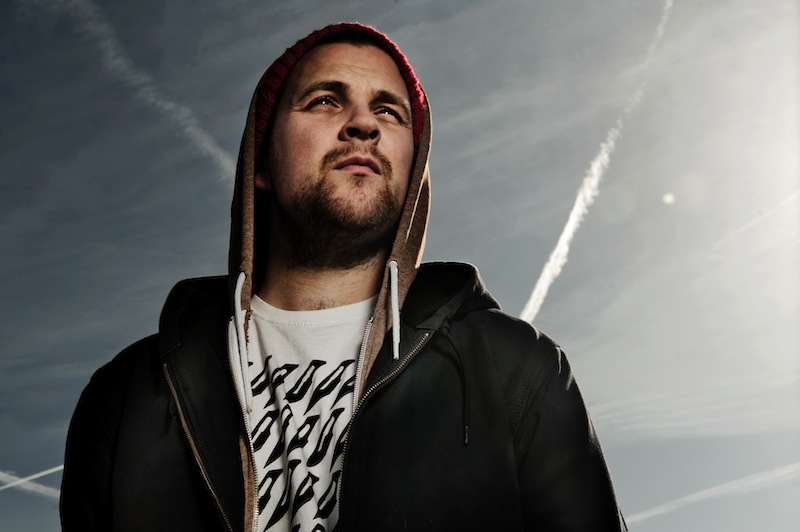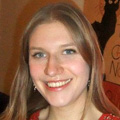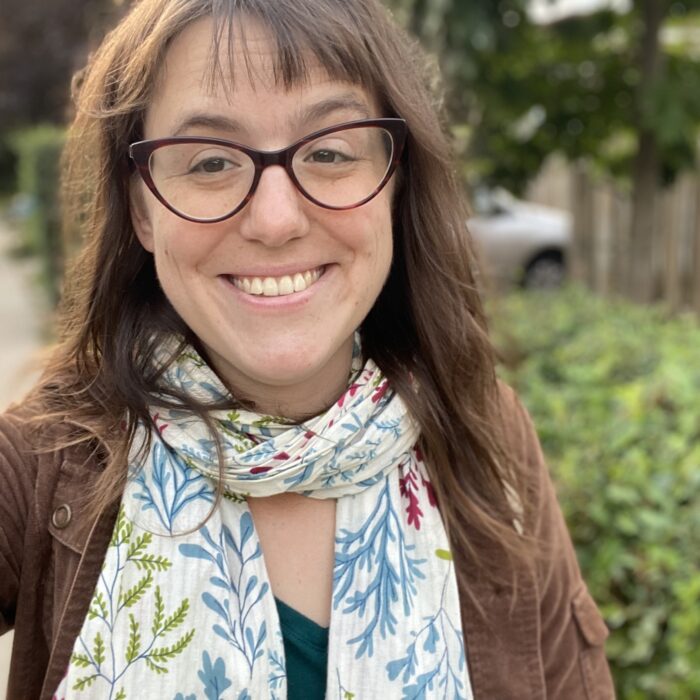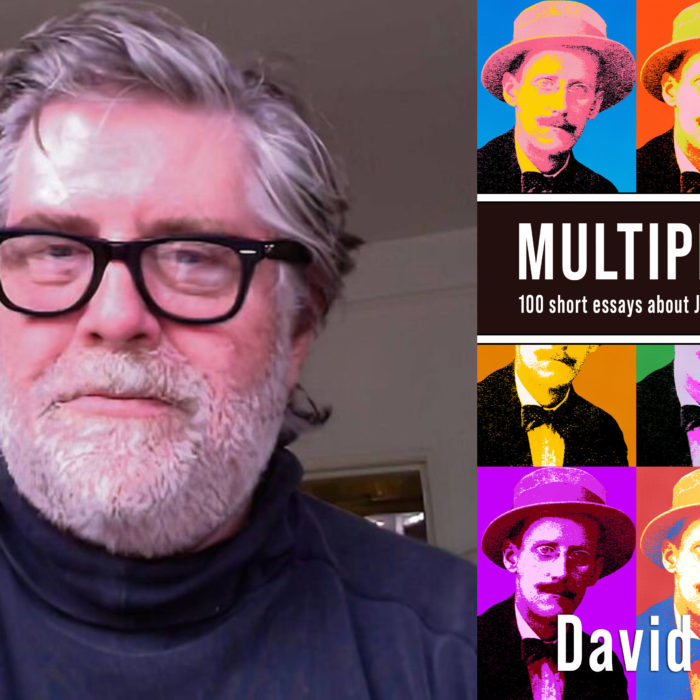You have no items in your cart. Want to get some nice things?
Go shopping
As a performer, Polarbear is fairly unique. Mouthy, offbeat and energetic, almost a rapper and almost a stand-up comedian. “If you’ve never had the urge to get a tattoo of someone’s name somewhere on your body, you’re not really in love with them,” he deadpans at one point. He’s also a spoken word artist who makes the everyday poetic.
He’s fascinated by the endless patterns that run through life and in his new show, Old Me, he talks about parenthood, childhood, family, drug highs, and jumping into an empty swimming pool in Las Vegas—all of which make up parts of his journey from Birmingham builder to London writer. He’s got a fascinating story to tell, and he tells it fabulously in every sense, bouncing enthusiastically around the stage (designed, aptly enough, to look like a deconstructed building site) to the accompaniment of Daniel Marcus Clark’s excellent musical score and Cis O’Boyle’s subtly beautiful lighting arrangements.
Polarbear’s got a razor-sharp memory for detail and a lot of the power of the stories he tells come from his vivid descriptions of how life physically feels as he experiences it—sandpaper against the skin, hand cut by glass, arm in traction. Everything, to his clever, allusive mind, reminds him of something else, often with brilliant results: the bank teller he goes to see looks just like Davros, King of the Daleks, and he has similar repeated run-ins with Tarzan’s Jane and a large stuffed tiger. Polarbear’s stories can be hilarious, gut-wrenching, lovely and physically gross, and sometimes all of the above at once. His unique gift of the gab manages to link things together that you might think wouldn’t go at all, and it’s to his credit that by the end of his show he’s taught the audience to see, like he can, the “romance in a broken nose”.
Of course, I had to interview him after the show.
I’m curious. Where did the name Polarbear come from?
The simple answer is that when I was a kid, football and wildlife programmes were the two things I got most excited about. David Attenborough told me that polar bears have no natural predators, and that made them seem to me like the coolest things in the world. I decided that I should have been one. When I started rhyming and getting into hip hop I needed a name. There were a lot of aggressive names around at the time, and so I chose Polarbear.
You made a big break with your past life to become a spoken word artist, but has music-making, rhyming and hip hop always been important for you?
Hip hop has – poetry never really was. Spoken word never was either – I fell into it by accident. I’d been making hip hop tracks for people at home in Birmingham and my friend told me about an event where people were rhyming with no music. So I went down and did something, and then a guy asked me to do some spoken word. I didn’t even know what spoken word was at the time – and then he took me to Glastonbury. It all started from there.
Your show has a lot of poetic elements to it, and I know you do a lot of vocal teaching work with kids. Do you think of yourself as a poet?
I teach spoken word. Sometimes the kids write it down, but my courses are all about writing for your own voice. It’s not about me making them better poets, it’s about them finding their voice, what they want to say and how they say it.
What are your influences? Do you have favourite artists working right now?
In terms of my work I’m more influenced by other forms than other writers – films and music are massive influences for me. When it comes to my own writing it’s more the people I’m around, and where I’m from. It’s more about ideas, which usually come from a real-life situation.
When you’re writing your stories, do you imagine yourself talking to a particular person?
This piece, Old Me, is very different to the last feature-length thing I did. I wanted it to be very direct and immediate, messy and blunt. In my mind, this is aimed at a couple of people – speaking to my dad, to my oldest son, to my partner and to myself – to myself as I was a few years ago. And, of course, to anyone else who’s in the room!
You’re very interested in the connections in life. Is there an old me and a new me, or is it less simple than that?
Lives are messy, aren’t they? Nobody’s just one thing, and everything you are is just a drop in the ocean of what you, or any person, could have been. That’s a big part of the idea of the show.
Your material is often very funny. Do you see yourself as a comedian?
For this one, particularly, I wanted it to be enjoyable to speak. I don’t really think about responses when I’m writing – you don’t really know what people are going to find funny. But then when you speak it, and people laugh out loud – sometimes because it’s funny, sometimes because they’re slightly uncomfortable – it’s interesting. I like the way the mood changes. When something’s this direct it really is affected by who you’re speaking to and the energy you get back from them.
If you are affected by your audience, how much of the show is improv and how much is rehearsed?
There’s no improv at all. Only the way I speak changes. I wrote so much more than made it into the final script, and then it was all about ordering the material, turning it into a journey of each day of the week. It changes a lot because of my mood, because of the way I speak, but the order of the script, its connections with the sound and lighting, is fixed.
How was it to work with the rest of the creative team of Old Me? Had you done something like this before?
It was amazing. This was genuinely a collaboration. The last thing I did, I wrote the story first, tried it, performed it, changed it and then brought music in on top of that. This was very much lighting, design, projection, music and direction, all of us working together, making decisions together. I found it very exciting. There’s this image of a lone writer, and even though I enjoy that when I’m creating something on a single page, something to be read, when I’m creating something longer to perform, an experience, then it has to be a collaboration with people to get the best of it.
How would you sum up the show? What things did you want to achieve with it?
Old Me has come out of an obsession with the idea of conviction, what conviction means and where it goes if you don’t have creative purpose, and then how it all shifts and you can use that conviction when there is something you want to do. That’s the heart of it. Things I was taught, things I’m trying to teach to my own children – things I want to pass on and things I don’t want to pass on. There’s a lot to do with parenthood and legacy – the legacy that you’re leaving and what you’ve been left yourself. This is not me saying that everybody should be like this – I don’t want to make anybody feel like I’m telling them there is a way to be a parent, for instance, but the things I’m talking about during the show are genuinely what I believe. This is the first time I’ve ever communicated direct opinion. I’ve never done it before in any of my work so I was interested to see what it felt like. It’s scary but it’s what I believe, so it’s quite satisfying.
Storytellers often embellish – what’s the relationship between truth and fiction in your work? Especially, what’s up with all those tigers? Are they real or a hallucination, and does it even matter?
I’m not a big believer in fate, but since I’ve started doing this so many things have been falling into place, leading to me feeling that this was meant to happen. That’s what the tiger’s meant to communicate. In this show, it’s all true.
You can catch Polarbear’s new show, Old Me, at the Roundhouse Theatre from now until December 3rd. Here’s a preview:
httpv://www.youtube.com/watch?v=A0rSy2dz-5Q

About Robin Stevens
Robin started out writing literary features for Litro and joined the team in November 2012. She is from Oxford by way of California, and she recently completed an English Literature MA at King's College, London. Her dissertation was on crime fiction, so she can now officially refer to herself as an expert in murder (she's not sure whether she should be proud of that). Robin reviews books for The Bookbag and on her own personal blog, redbreastedbird.blogspot.co.uk. She also writes children's novels. Luckily, she believes that you can never have too many books in your life.




Saw this on the opening night and found it to be an absolutely brilliant, heartfelt and witty performance. The intimacy of the audience was wonderful as well and added a fascinating dynamic – it was very personal and reflective to you as well as to the artist. Lovely interview!